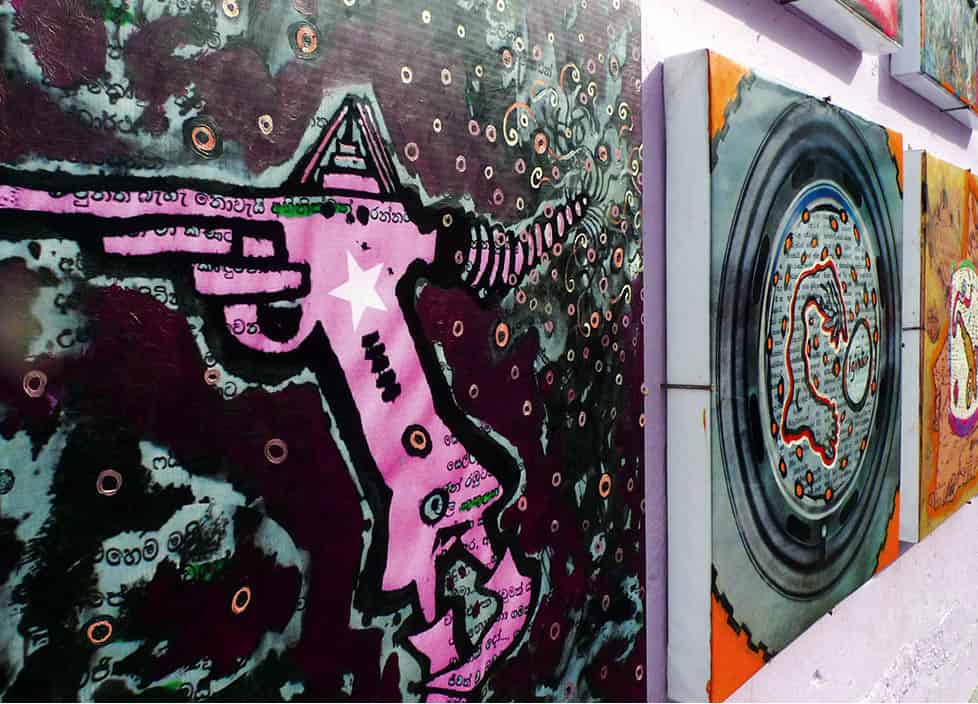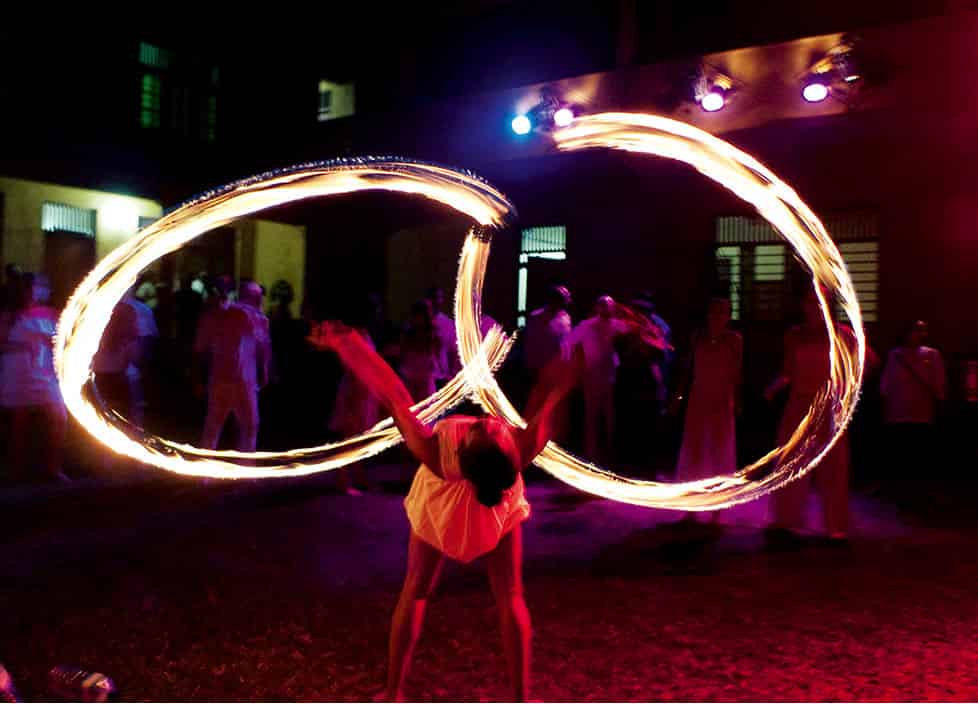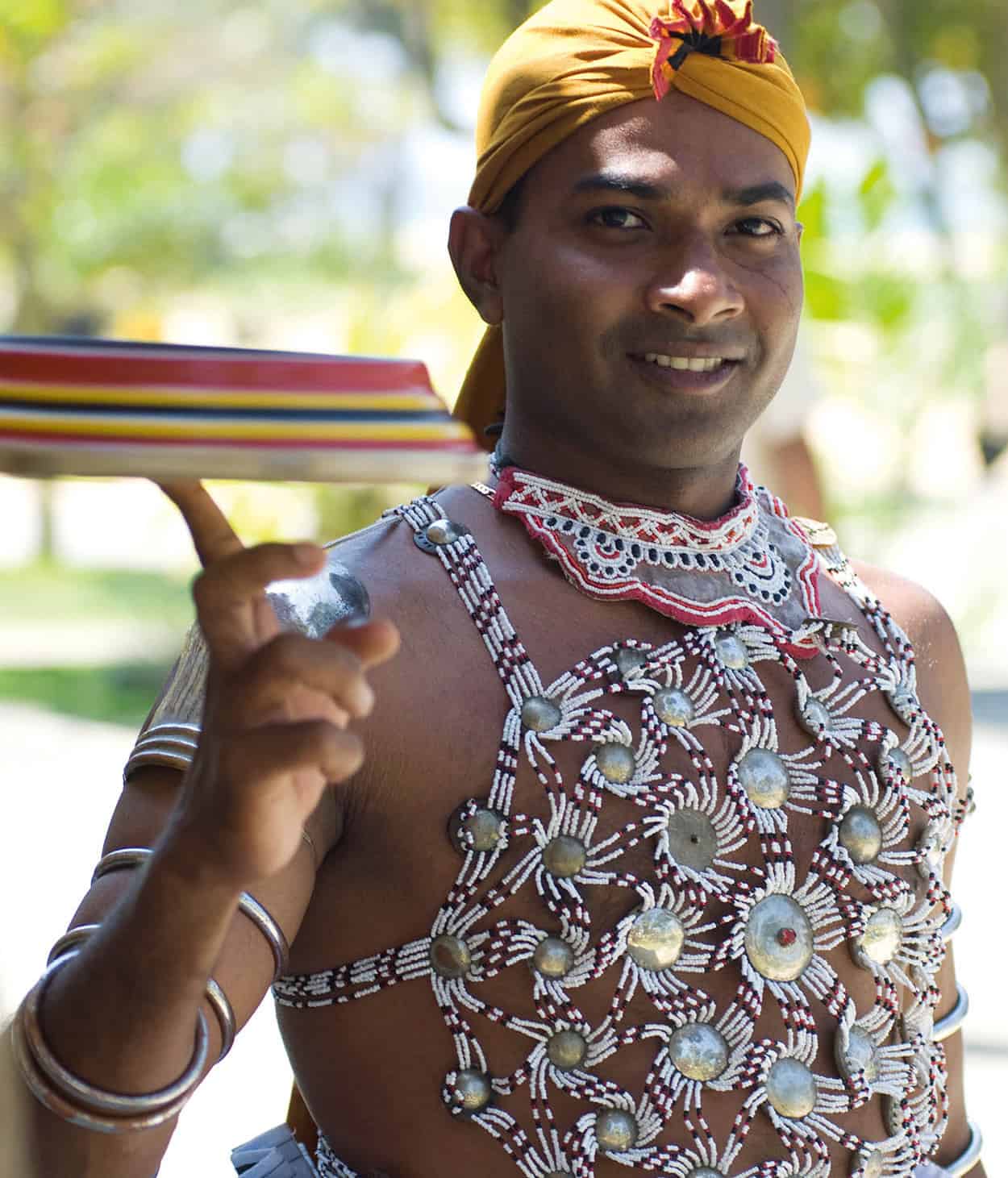Although there’s not much in the way of after-dark entertainment in Sri Lanka, the country has a packed festival calendar – with spectacular processions, caparisoned elephants, and drummers and dancers aplenty – and a rich dance tradition, ranging from the flamboyant classical traditions of Kandy to the populist dance-dramas and exorcism ceremonies of the south.

Modern art in Colombo
Indi Samarajiva
Dance and music
The classical performing arts of Sri Lanka are generally divided into two groups: up-country, or Kandyan, encompassing the aristocratic classical dance traditions of the former Kandyan kingdom, with their lavishly costumed dancers and highly stylised choreography; and low-country, covering the much more populist traditions of the south. These feature masked kolam dance-dramas (usually a satirical portrayal of village life) and exorcism ceremonies, which still show strong pre-Buddhist roots and continue to be a vital part of Sri Lankan culture.
Modern Sri Lankan popular songs invariably have lyrics lamenting lost or unrequited love. Much brighter and more fun is the baila style inherited from the Portuguese. As well as electronic bands (and there is a flourishing heavy-metal scene), oriental groups with a harmonium and hand drums sometimes play in hotels.
Major tourist hotels try to provide entertainment for their guests every night. In the Colombo five-star properties this means an electronic band playing in the lounge and a pianist in the fine-dining restaurant. Beach and hill-country hotels also have lounge-bar bands and occasionally put on shows with traditional magicians, jugglers and fire dancers.
Art
Regularly changing exhibitions of work by local artists are staged at the Gallery Café, Barefoot Café (see route 2) and the Saskia Fernando Gallery (41 Horton Place, Colombo 7; www.saskiafernandogallery.com). An art show called Kala Pola is held on the sidewalks of Nelum Pokuna Mawatha, Colombo 7, every January: around 300 artists from across the country exhibit their work for one day only.

Fire dancing is a typical hotel entertainment
Indi Samarajiva

Performer on Negombo Beach
Sylvaine Poitau/Apa Publications
Nightlife
If you want raucous after-dark nightlife, Sri Lanka isn’t the place to come. Only in Colombo will you find any kind of nightlife, and even this is modest. Popular nightspots include the long-running Rhythm and Blues live music bar (Daisy Villa Avenue, R.A. de Mel Mawatha, Colombo 4) and Clancy’s Irish Pub (29 Maitland Crescent, Colombo 7). Clubs come and go on an annual basis: Kama (32b Sir Mohamed Macan Mawatha, Colombo 3; www.kamacolombo.com) is currently one of the main venues.
The alternative is the city’s four casinos, which are open 24 hours a day, except on Poya days. All offer roulette, blackjack and baccarat. Drinks and snacks are available free to players, and they also offer buffet dinners and live music. Membership is in name only; anyone can sign in and play. Try Bally’s Club (14 Dharmapala Mawatha, Colombo 3; www.ballyscolombo.com); Bellagio (430 R.A. de Mel Mawatha, Colombo 3; www.bellagiocolombo.com); MGM (772 Galle Road, Colombo 4; www.mgmcolombo.com); and Star Dust Club (5th Lane, Galle Road, Colombo 3; www.stardustcasino.lk).
Outside the capital, the island’s only after-hours activity is at the tourist resorts of Negombo, Hikkaduwa and Unawatuna. The last two can get particularly lively during the season, with regular beach parties, discos and full-moon events.
Festivals
Peraheras (parades of elephants and dancers) are held in many places, the most popular being the Navam Perahera in Colombo (February) and the Esala Perahera in Kandy (July/August). The Sinhalese and Tamil New Year Festival is in mid-April, when shops close and people visit their home villages, many to take part in contests like greasy pole pillow fights and bicycle races.
Not all the island’s festivals are religious. Occasional kite-flying festivals are held on Galle Face Green in Colombo, and an annual surfing festival takes place in Arugam Bay, on the east coast. Hikkaduwa is home to an annual beach festival and Galle Fort hosts a literary festival in January.